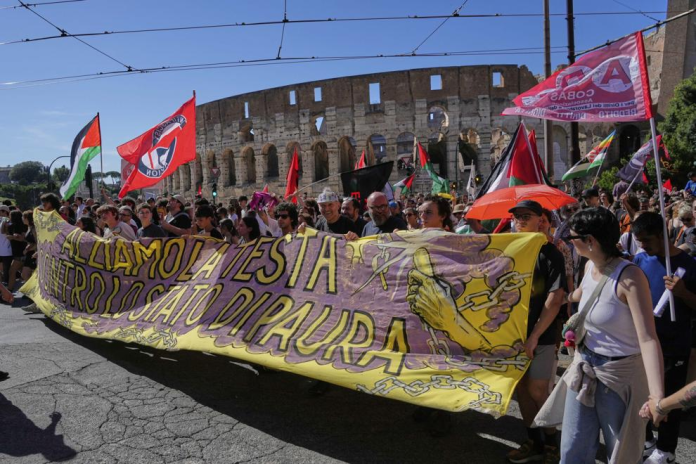Italy’s Senate approved the contentious Security Decree, formally enacting it into law following a tense parliamentary session marked by opposition protests, Euractiv reported.
The legislation, championed by Prime Minister Giorgia Meloni’s government, criminalises previously non-violent forms of protest including passive resistance and specific acts of civil disobedience. Actions such as refusing food during prison riots or remaining seated during disturbances may now incur legal penalties. The ban will also affect so-called “legal” cannabis.
The decree also targets road and railway blockades with punishments ranging from one-month imprisonment and €300 fines for individuals to six-year sentences for organised groups.
The bill’s ratification occurred amid dramatic scenes in the Senate, where several opposition senators staged a sit-in before government benches, shouting “shame, shame” during the vote. The legislation forms part of a broader package aiming to bolster public security, enhance protections for law enforcement personnel, and combat terrorism, organised crime, property occupation, and public disorder.
Prime Minister Meloni hailed the outcome as “a decisive step” in fortifying protections for both citizens and uniformed services.
With the final approval of the Security Decree in the Senate, the government strengthens the protection of citizens, the most vulnerable, and our law enforcement personnel.
The enactment has drawn forceful condemnation from global human rights bodies. United Nations Special Rapporteurs, the OSCE’s Office for Democratic Institutions and Human Rights, and the Council of Europe’s Commissioner for Human Rights collectively warned that the measures contravene international human rights standards.
They specifically cautioned that the legislation could undermine fundamental principles of criminal justice and the rule of law while disproportionately impacting migrants, racial minorities, and prisoners.
